
President Carlos Alvarado stepped off the podium and behind him follow vice-presidents Marvin Rodriguez and Epsy Campbell. They hug him. It’s 2 p.m. at the Recaredo Briceño Park and an applause explodes from the crowd. First Lady Claudia Dobles gives him a kiss. His whole team walks ahead and, Carlos in the center, they all hug around the waist, smile and greet the public. This scene hasn’t been seen with such passion since Alvarado was on campaign.
That’s how Carlos Alvarado’s second July 25 speech as president ended
But the rejoicing didn’t come free. Just a few minutes ago, when he was starting his speech, Alvarado didn’t receive an applause. He was booed. “Go away, president,” screamed several unionists at the foot of the stage in the park.
“I feel very proud of a country that opens the most modern geothermal plant in the region,” Alvarado said in a broken voice through a broken microphone.
With desperate signals from his team to the technicians to raise the volume, the president also raised his voice and continued saying that he is proud of the work “of a team that has guaranteed more than 14 investments of more than 400 million colons for the province of Guanacaste.”
The first lady looks discretely to both sides and stands up to applaud her husband’s incipient euphoria. All of a sudden, the applause of the executive grew louder as the booing from the unionists grew softer. “Go away, president” chants were drowned out.
And so, as if it were a competition of who has more followers, Alvarado shouted at the top of his lungs. “To those who try to stop us, we aren’t going to let you stop us. Long live the annexation and long live Guanacaste, long live Costa Rica.” The volume wasn’t necessary. The president’s screams and gestures accenting his words were enough.
On stage, the team’s eyes say “we won this one.” Immediately, the Nicoya city band and the majority of those present in the park assumed the act had reached its end. It was the perfect ending to a fight of screams and power, a metaphor of Costa Rica over the last two years.
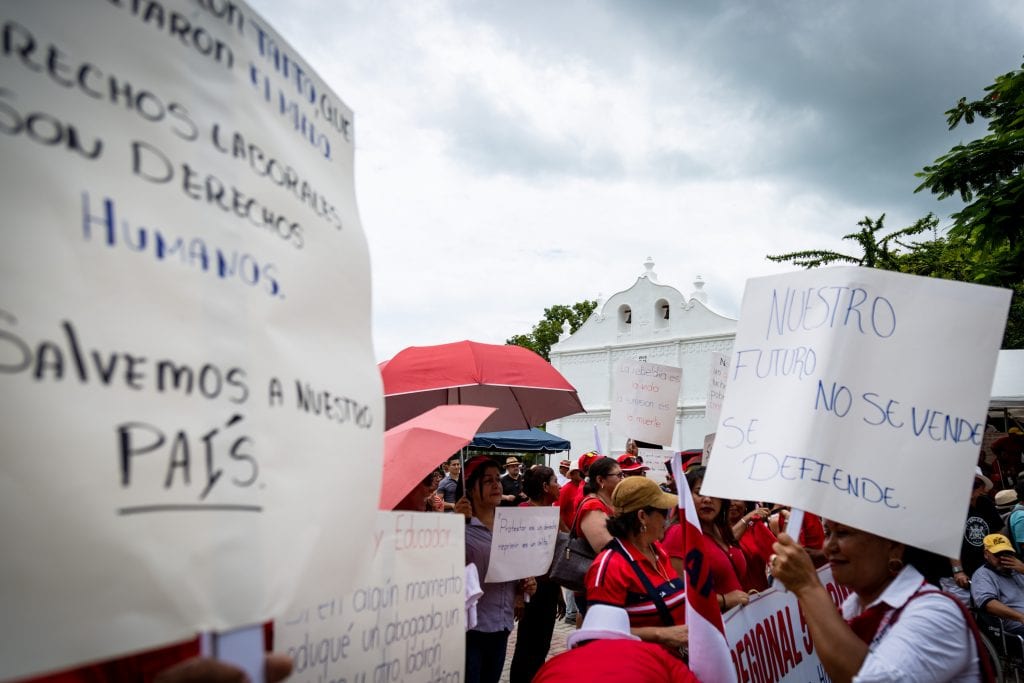
Protesters, mostly from APSE, took to the streets of Nicoya at 8 a.m.
***
In Nicoya, several years had gone by without protests and booing, but the park full of unionists prepared a very different scene for today.
The government’s day began at 8 a.m. in Coopenae with the usual singing of anthems. Sofia Angulo, a ninth grade student at La Esperanza de Nicoya high school, stirred up the energy with her critiques of the government, based on data and facts that showed the delays in rebuilding schools after the 2012 Samara earthquake and the poor conditions of the streets across the lowlands.
Then came the speeches of lawmakers and leaders. Welmer Ramos from the Citizens’ Action Party (PAC) spoke vehemently of his efforts to improve debt conditions for ticos. Luis Antonio Aiza criticized Carlos Alvarado because PAC didn’t support fiscal reform during the government of Laura Chinchilla a decade ago. Patricia Quiros, executive president of the National Water, Irrigation and Drainage Servica (Senara) promised that the project Paacume would continue despite a ruling from the Constitutional Court that halted it (due to an injunction filed by two farmers represented by former lawmaker Otto Guevara). “We have 12 professionales who are working on the recommendations that Setena gave us,” the leader said amid spontaneous applause in the morning hours.
Everything seemed to be in its place. Mid-morning, Carlos Alvarado received a small quijongo and promised music teacher Karlo Cabalceta that he would take classes in 2022. Everyone laughed softly. Others on the podium mentioned the San Blas church and the Chorotega regional market as one of the great achievements of this government (and promised in last year’s speech).
As every year, the government council gave a press conference in which the president began to turn up the engines when reporters insisted on asking about Rodolfo Piza and his potential departure as chief of staff, as well as other topics of interest.
“We are helping 2,000 children become bilingual here in Guanacaste and you ask me if I support neutral bathrooms or not, or about gender ideology. It’s a bizarre reality,” the president said while, outside, unionists from the Association of Secondary School Teachers (APSE) protested.
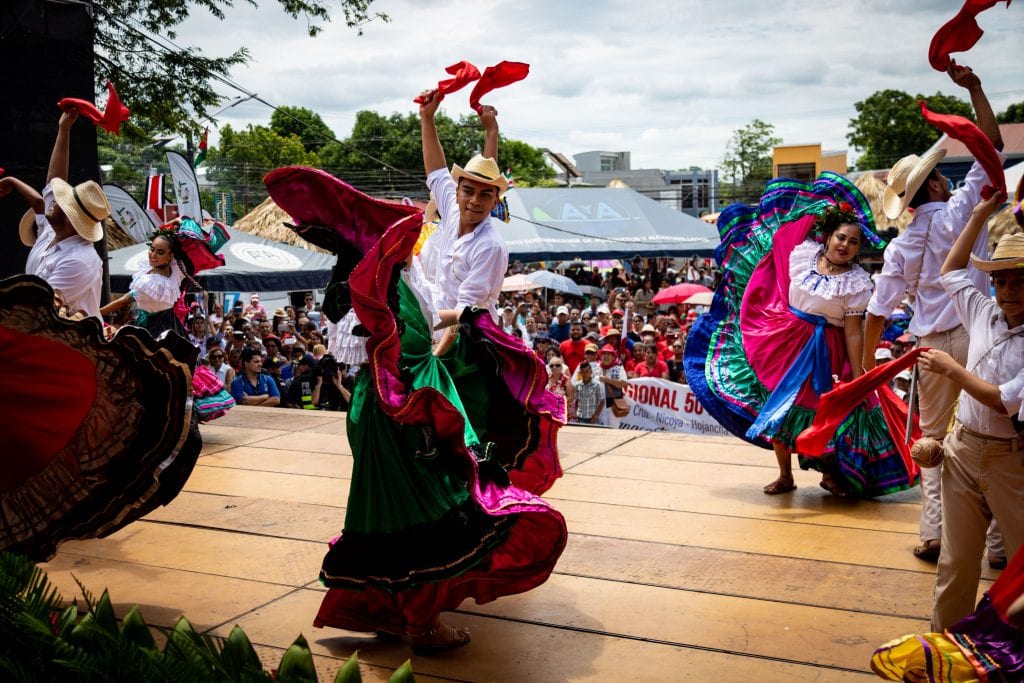
Cultural activities soothed the spirits of leaders and those in attendance.
***
Once in the park, the leaders sat at a table. On one end, Marco Antonio Jimenez, the mayor of Nicoya, and at the other sat Luis Antonio Aiza, a congressman from Guanacaste. The two forces of the National Liberation Party in the Canton have the coordinador of the Chorotega region between them and the first lady Claudia Dobles, President Carlos Alvarado and the president of the Nicoya council Saúl Cárdenas.
Ministers and other leaders sit in the back rows. One closed his eyes and fell asleep despite his best efforts not to during the midday heat. There were typical dances on stage, ribbons, cultural recognitions and several speeches by politicians.
Luis Antonio Aiza was booed during his speech. On the other hand, Nicoya mayor Marco Jiménez was applauded and received ovations from the protesters. “Costa Rican educators are the army of peace in this country,” he said with his fist closed tightly. “I take my hat off to you and I respect the fight that you have led in favor of the Costa Rican people,” he said as he raised his arms and received screaming approvals from unionists.
An hour went by before Alvarado took the stage.
“Go away, president,” screamed some of those who joined the APSE protesters as Alvarado rattled of the list of projects he inaugurated during his tour through Guanacaste.
“Why are you protesting,” we asked some of the APSE participants.
“Words won’t be enough. The protests will give you the answer,” said one as he held a sign that read “If I ever educate a lawyer, a doctor or a thief in politics, I ask for forgiveness from my country.”
Union leader Adic Alvarado said that the union’s protests had to do with bills such as the one in congress to declare education as an essential service, a flat salary and dual education.
“The Citizens’ Action Party has at least nine lawmakers in Congress. If the executive branch had the willpower, they could archive the bills through their leader in congress,”
Nearby, two women argued. One defended the government and the other defended the unions.
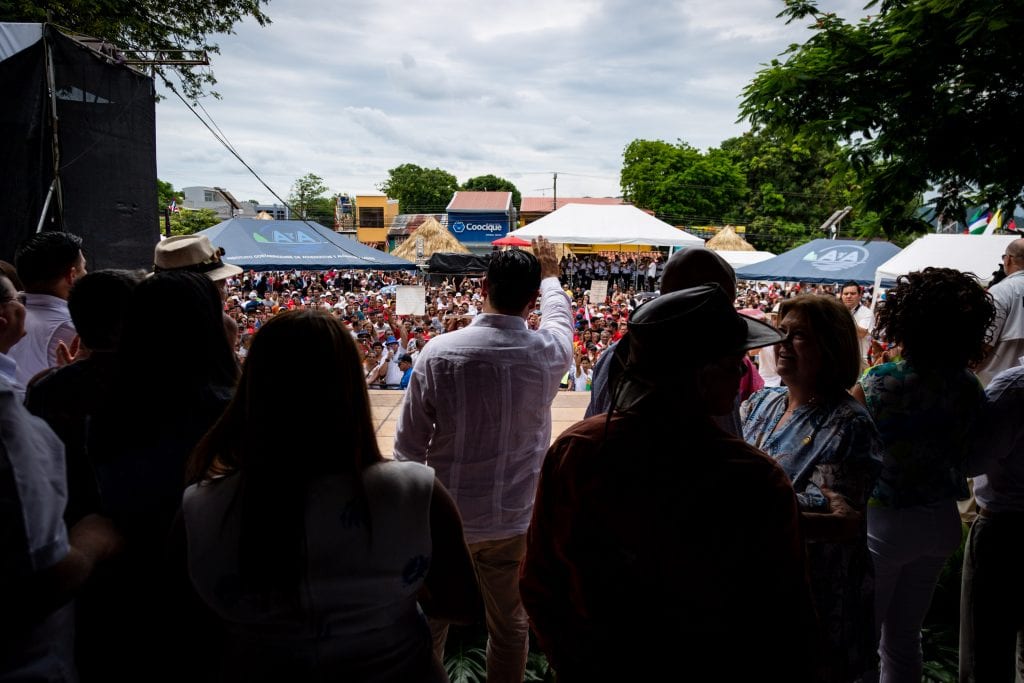
Carlos Alvarado’s cabinet stood up to hug him during his speech.
At 2 p.m., Alvarado found it hard to get off stage. He takes a step forward and receives a hug, takes another step forward and someone shakes his hand. It didn’t matter that the speech was only mediocre or that he wasn’t able to talk about the typical promises that leaders make to the province year after year. The executive celebrates as if it was all planned this way.
On the sidewalk, the police open the pathway with metal guardrails. Two women say to him, “Greetings president” and extend their hands. On the other side, protesters scream “traitor” as if pointing out a metaphor of the scale of polarization that the country has suffered since the 2018 elections.
Before getting in the car to get out of the heat and away from the people, a reporter asks him why he was so excited during his speech. “I think it’s cause I haven’t had lunch yet, so I’m a little hungry.”


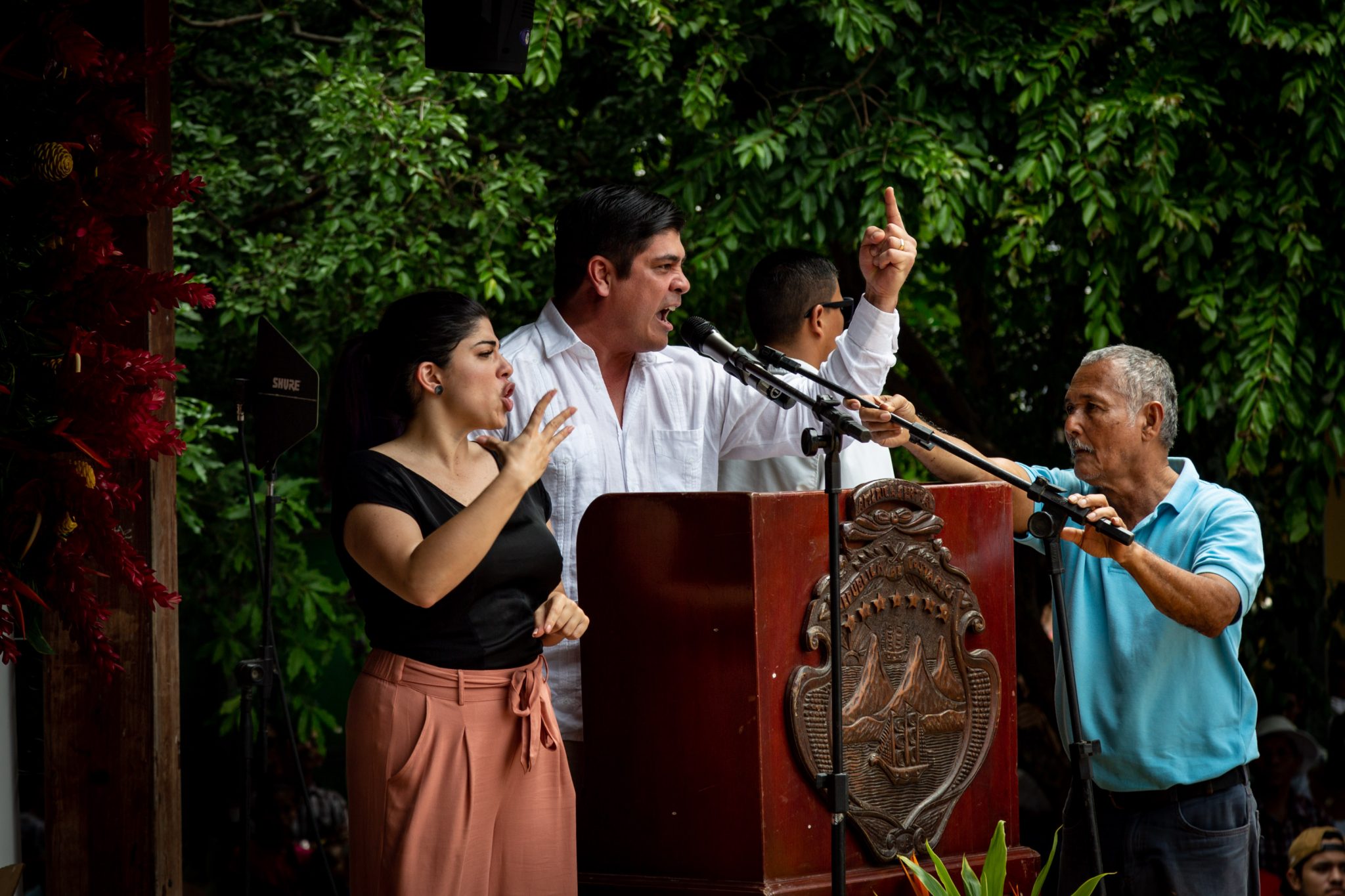
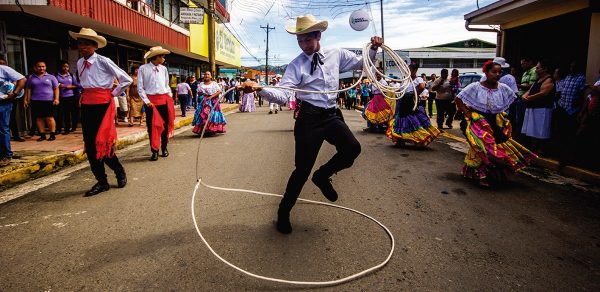
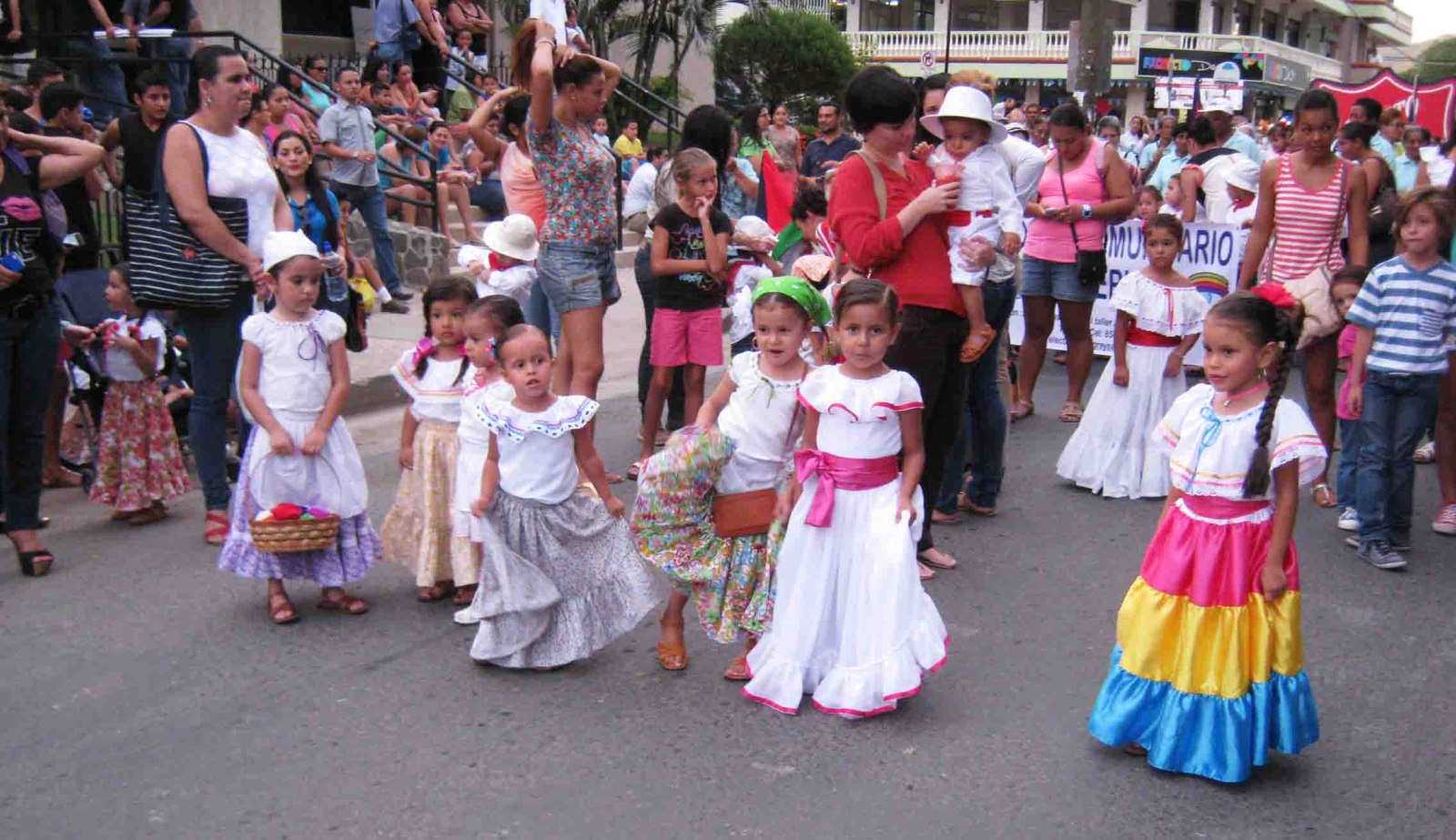
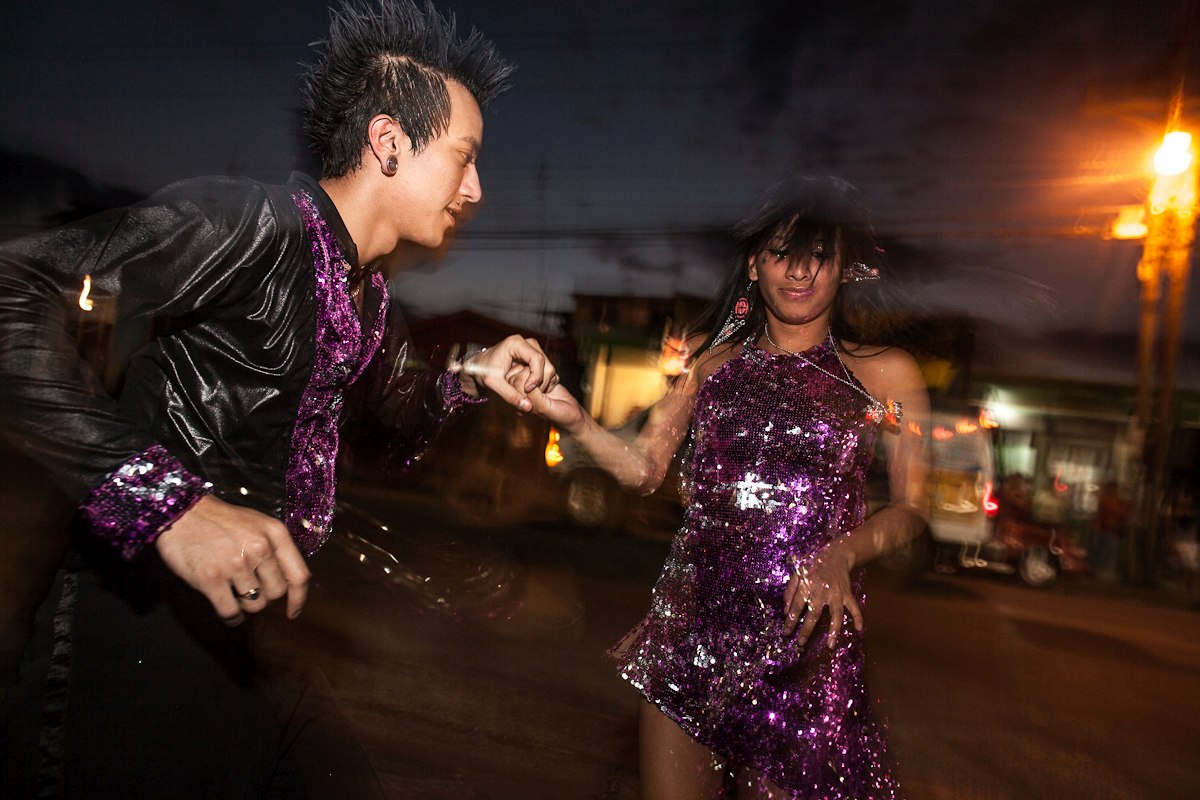

Comments